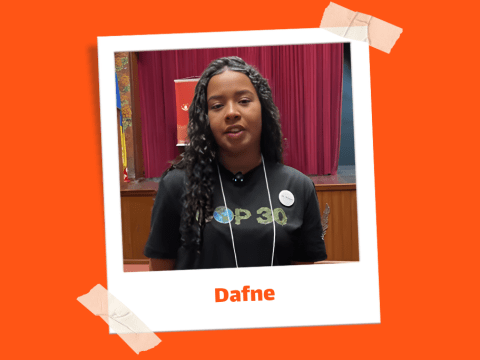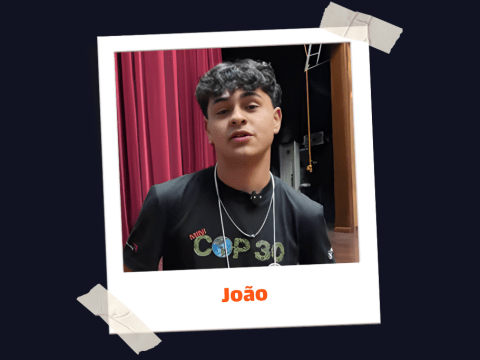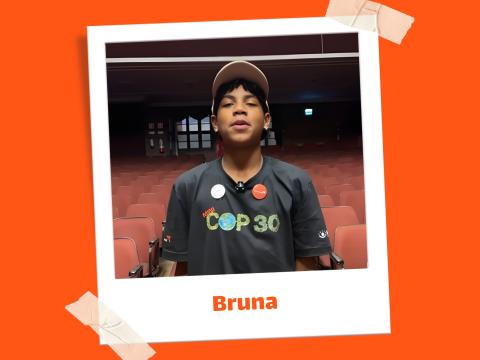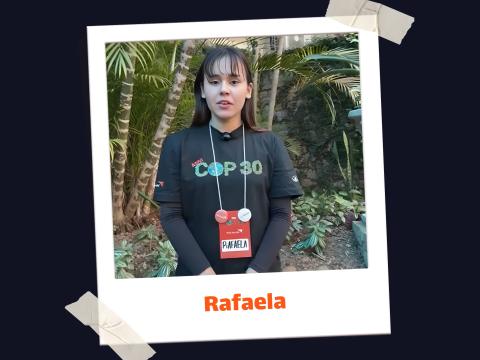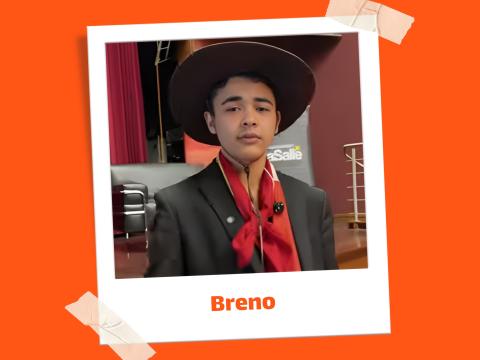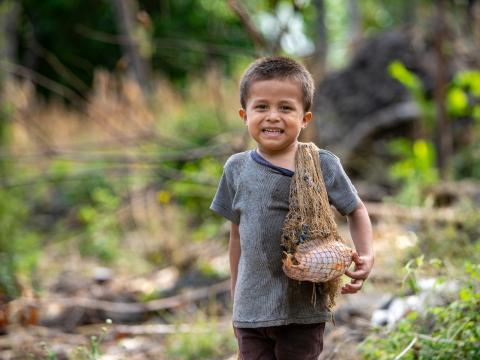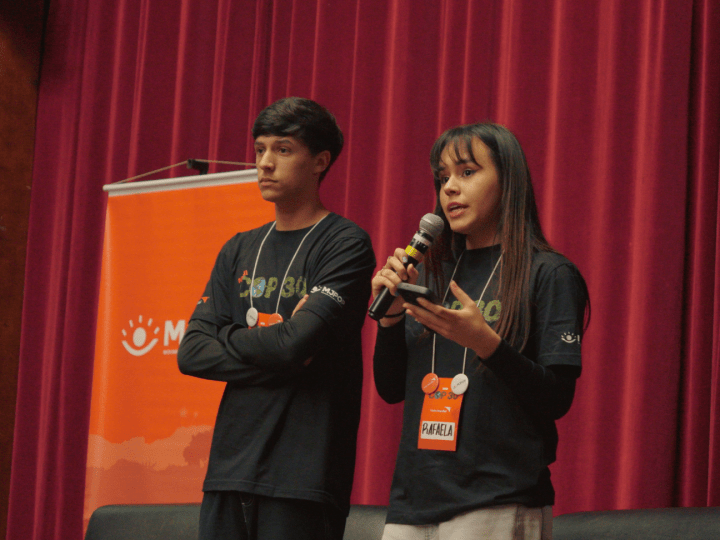
Mini-COP30
Amazonian Mini-COPs: Children’s Voices on the Road to COP30
From Brazil to Colombia and Peru, more than 260 children and young people came together to speak up for the Amazon. Through fun, creative activities, they shared their hopes, worries, and ideas for protecting their homes and the environment they depend on.
Supported by World Vision, Mini-COP30 gives children the chance to lead the conversation on climate change. In safe, inclusive spaces, they share their experiences and design practical solutions to protect what matters most: clean water, nutritious meals, and quality education.
They will present their regional manifesto at COP30 in Belém do Pará, Brazil, continuing their call for bold, child-led climate action.
What is a Mini-COP?
Mini-COPs are dynamic, local gatherings inspired by the UN Climate Conference (COP), where children, adolescents and young people assess climate impacts, identify practical solutions and agree on concrete commitments with their schools, communities and local authorities.
How are they carried out?
- Territorial and participatory: Sessions take place in schools and communities through workshops, thematic discussions, risk mapping, school gardens and water committees.
- Child-friendly methods: Engaging activities, simple evidence tools (checklists, photos, quick surveys) and youth spokespeople ensure inclusivity and fun.
- In partnership with local actors: Teachers, families, municipalities, farmers, faith leaders and technical partners work together to amplify impact.
- Deliverable: Each Mini-COP concludes with a set of local agreements and demands ready to present to decision-makers and to scale up towards COP30.
How do they make a difference?
- Bring solutions close to home: Access to safe water, school feeding, gardens and reforestation strengthen both health and sustainability.
- Boost learning and wellbeing: Improved attendance, focus and hygiene outcomes in schools.
- Empower local governance: Student and environmental committees gain a voice in school and community planning.
- Mobilise useful financing: Local purchasing, maintenance and supplies stimulate nearby economies.
Why do Mini-COPs matter?
Mini-COPs place children and young people at the heart of climate decision-making. They elevate local evidence and highlight what already works, ensuring that community-driven solutions gain visibility on the road to COP30.
By aligning schools, communities and governments around clear and sustainable goals, Mini-COPs create pathways for real impact that uphold children’s rights to protection, education, water, health and nutrition. Above all, they remind us that meaningful climate action begins by listening to those who will inherit the planet.
How do they empower children and youth?
- Voice and agency: Moving from being consulted to leading on priorities such as water, nutritious menus and reforestation.
- Practical skills: Learning safe water handling, composting, efficient irrigation and basic climate monitoring.
- Tangible impact: Active gardens, clean water access, local food purchasing and community tree planting.
- Confidence and leadership: New youth spokespeople engage principals, mayors and the media with purpose and pride.
Three Countries, One Voice.
From Brazil to Colombia and Peru, more than 260 children and young people came together to speak up for the Amazon. Through fun, creative activities, they shared their hopes, worries, and ideas for protecting their homes and the environment they depend on.
Brazil Mini-COP in Action
In Tabatinga and Rio Grande do Sul, 220 adolescents took part in lively dialogue and learning sessions on climate change mitigation, nature conservation, and disaster prevention, reflecting on the devastating events experienced in 2024. Participants called for a reduction in plastic use, stronger recycling efforts, and better protection of the Amazon’s forests and rivers. In their manifesto, they voiced their dream of “a living Amazon, with green forests, clean rivers, and free animals” and urged that their voices be heard at COP30.
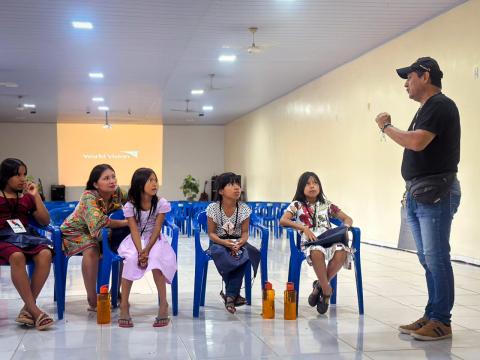
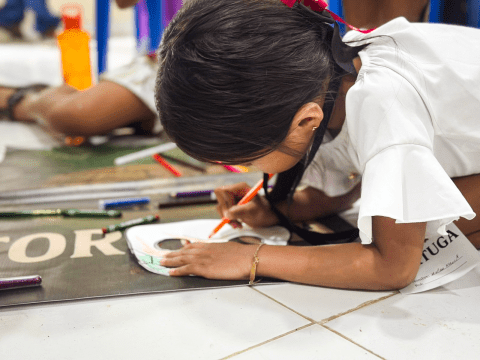
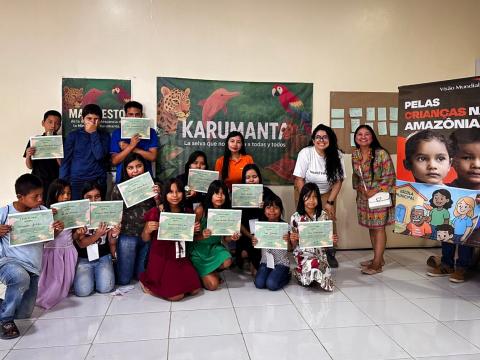
Colombia Mini-COP in Action
In Leticia, children and adolescents aged 10 to 16 reflected on the impact of deforestation and pollution in their communities. Concerned about water shortages and forest fires, they proposed solutions such as reforestation, responsible consumption, and reducing plastic use. Their manifesto highlights the importance of child participation in environmental decisions and calls for global commitments to turn into real, tangible action to protect the rainforest.
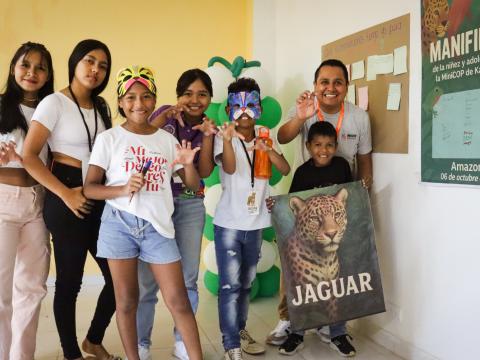
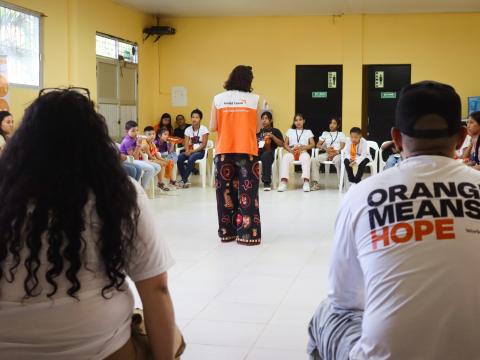
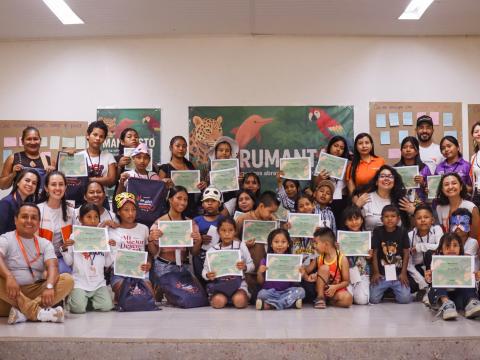
Peru Mini-COP in Action
In Santa Rosa de Loreto, children aged 9 to 15 shared their worries about pollution in the Amazon River, illegal logging, and forest fires. They proposed environmental education campaigns, clean-up days, better waste management, and reforestation. They also called on authorities to fulfil their responsibility to ensure proper environmental management and safeguard the lives of both animals and Amazonian communities.
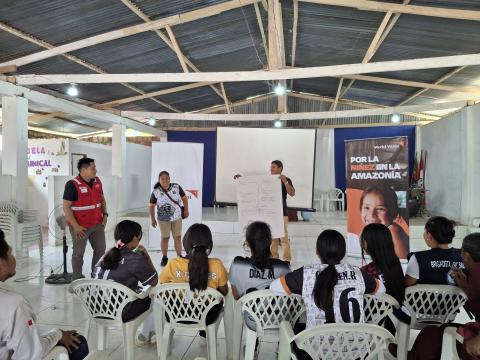
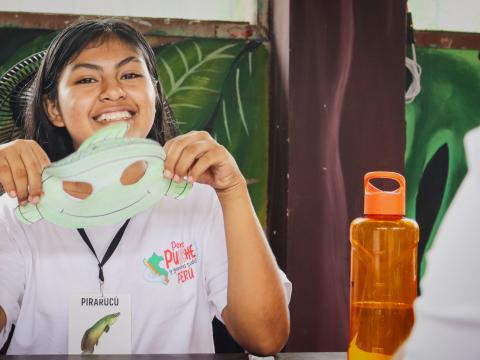
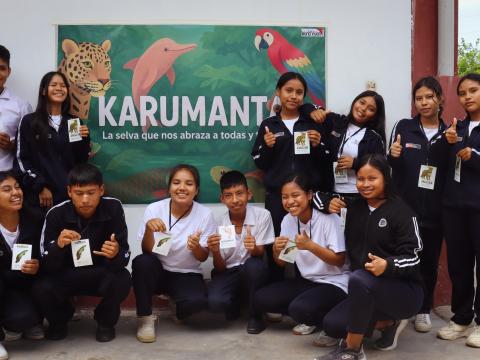
Leading the Way
Children and youth share how they’re taking action to protect their schools, communities and our planet.
